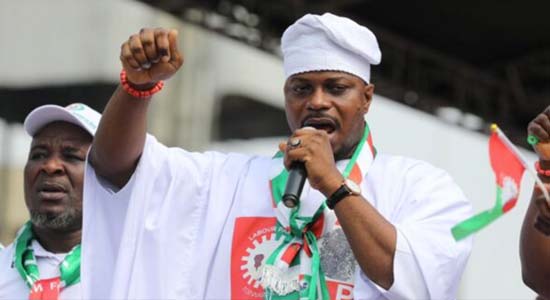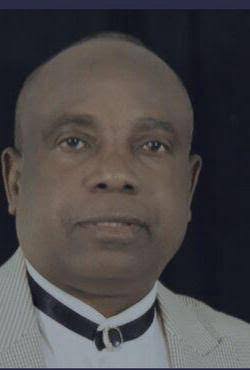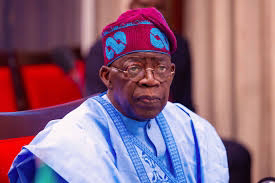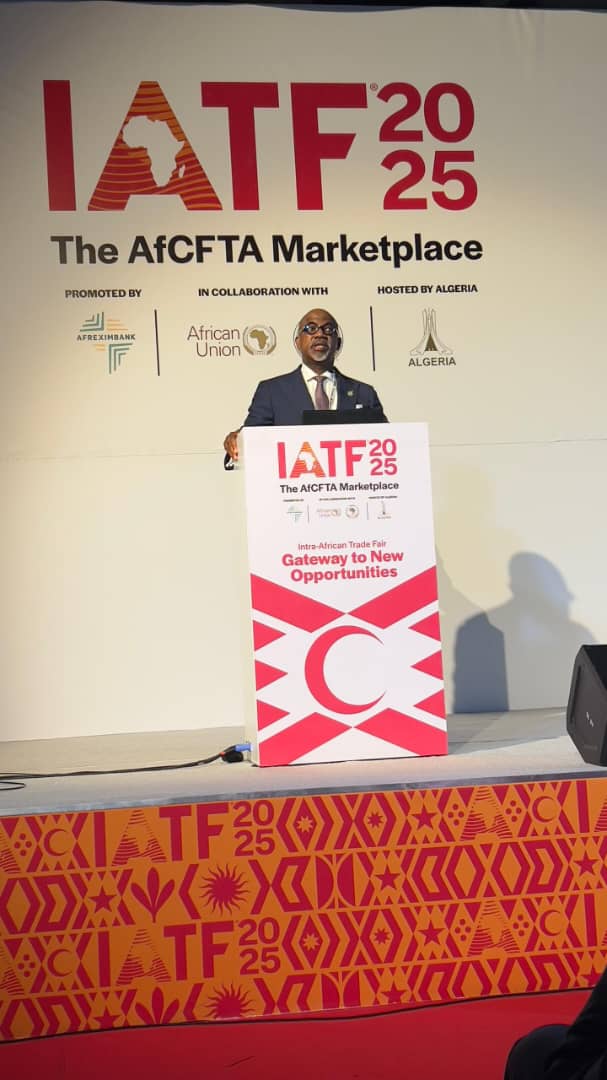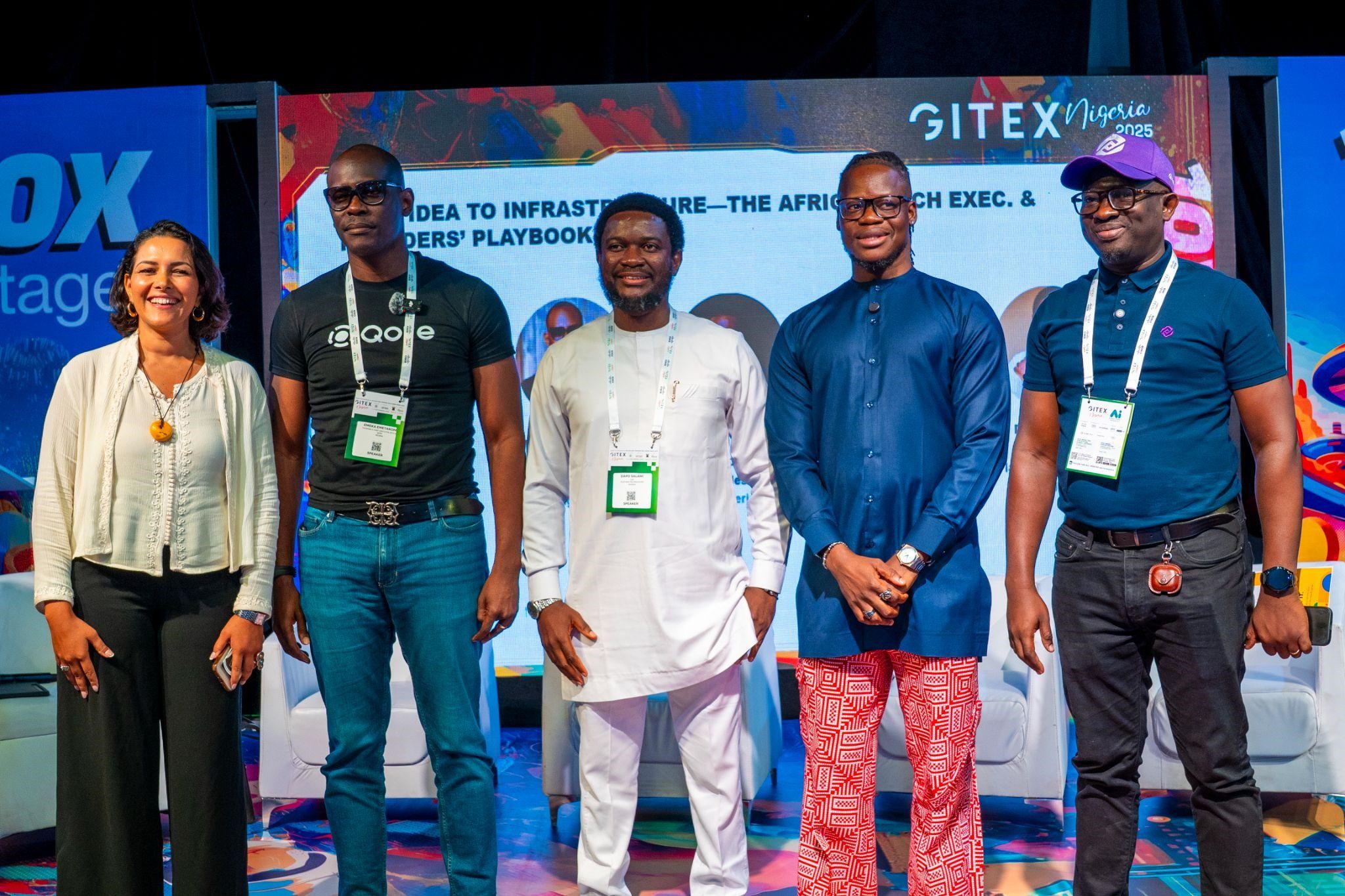In a surprising turn of events that has sent ripples through Nigeria’s political landscape, Gbadebo Rhodes-Vivour, the Labour Party’s (LP) governorship candidate in the 2023 Lagos State election, has announced his defection to the African Democratic Congress (ADC). The move, which Rhodes-Vivour claims was made after consultations with key political figures, including Peter Obi, the Labour Party’s 2023 presidential candidate, marks a significant moment in Nigeria’s evolving political dynamics. This decision not only reshapes the opposition landscape in Lagos but also raises questions about the future of the Labour Party and the broader opposition movement in Nigeria.
The Announcement and Context
Rhodes-Vivour’s defection was formally announced in a statement that highlighted his reasons for leaving the Labour Party, a platform that had propelled him into the national spotlight during the 2023 elections. According to Rhodes-Vivour, the decision was not taken lightly but was the result of careful deliberation and discussions with key stakeholders, including Peter Obi, whose influence within the Labour Party and the broader Nigerian political space remains significant. Rhodes-Vivour emphasized that his move to the ADC was driven by a desire to align with a platform that better reflects his vision for Lagos State and Nigeria as a whole.
The Labour Party, under which Rhodes-Vivour contested the 2023 Lagos governorship election, had gained unprecedented momentum during the general elections, largely due to the “Obidient” movement—a grassroots campaign that rallied around Peter Obi’s presidential candidacy. The movement galvanized young Nigerians, who saw Obi as a beacon of hope in a country grappling with economic challenges, insecurity, and governance issues. Rhodes-Vivour, a charismatic and youthful politician, became a prominent figure within this movement, leveraging its energy to mount a formidable challenge against the ruling All Progressives Congress (APC) in Lagos.
Despite his strong showing in the 2023 elections, where he secured a significant share of the votes, Rhodes-Vivour lost to the incumbent governor, Babajide Sanwo-Olu of the APC. The election was marred by allegations of voter suppression, intimidation, and electoral irregularities, which Rhodes-Vivour and his supporters claimed tilted the scales in favor of the ruling party. These controversies, coupled with internal challenges within the Labour Party, may have contributed to Rhodes-Vivour’s decision to seek a new political home.
Reasons for the Defection
In his statement, Rhodes-Vivour cited several factors that influenced his decision to join the ADC. While he expressed gratitude to the Labour Party and its supporters for the platform they provided during the 2023 elections, he alluded to ideological differences and strategic misalignments within the party. According to Rhodes-Vivour, the ADC offers a more cohesive and focused platform to pursue his vision of transformative governance, particularly in Lagos State, which he described as the economic heartbeat of Nigeria.
One of the key issues Rhodes-Vivour highlighted was the need for a political party that prioritizes grassroots mobilization, inclusivity, and progressive policies. He argued that the ADC’s structure and leadership align more closely with his aspirations to address Lagos’ longstanding challenges, such as infrastructure deficits, urban planning, unemployment, and social inequality. The ADC, though a smaller party compared to the Labour Party or the APC, has positioned itself as a progressive alternative, appealing to politicians disillusioned with the mainstream parties.
Rhodes-Vivour also emphasized the importance of building a sustainable political movement that transcends individual ambitions. He stated that his consultations with Peter Obi were not merely a formality but a reflection of his respect for the Labour Party’s leadership and the need to maintain cordial relations despite his departure. Obi, who remains a towering figure in Nigerian politics, reportedly gave his blessings to Rhodes-Vivour’s decision, a move that could mitigate potential backlash from Labour Party supporters.
The Role of Peter Obi in the Defection
Peter Obi’s involvement in Rhodes-Vivour’s decision underscores the former Anambra State governor’s influence within Nigeria’s opposition politics. As the Labour Party’s presidential candidate in 2023, Obi transformed the party from a relatively obscure platform into a formidable force, challenging the dominance of the APC and the Peoples Democratic Party (PDP). His campaign, built on a message of accountability, economic reform, and youth empowerment, resonated with millions of Nigerians, particularly in urban centers like Lagos.
Rhodes-Vivour’s decision to consult Obi before making his move to the ADC highlights the complex dynamics within the Labour Party. While Obi remains a unifying figure for many within the party, there have been reports of internal divisions, particularly regarding the party’s direction post-2023 elections. Some analysts speculate that Rhodes-Vivour’s defection could be indicative of deeper fractures within the Labour Party, as key figures reassess their roles in the wake of the election loss.
Obi’s reported approval of Rhodes-Vivour’s move could also be a strategic effort to maintain unity within the broader opposition movement. By endorsing Rhodes-Vivour’s decision, Obi may be signaling his commitment to fostering collaboration among opposition parties, including smaller ones like the ADC. This approach could pave the way for coalitions or alliances ahead of future elections, particularly in 2027, when Nigeria will hold its next general elections.
The African Democratic Congress: A New Home for Rhodes-Vivour
The ADC, founded in 2005, has struggled to establish itself as a major player in Nigeria’s political landscape, often overshadowed by the APC and PDP. However, the party has gained traction in recent years by positioning itself as a progressive alternative for politicians and voters dissatisfied with the status quo. The ADC’s leadership has emphasized its commitment to good governance, transparency, and youth empowerment—values that align closely with Rhodes-Vivour’s political brand.
By joining the ADC, Rhodes-Vivour aims to leverage the party’s relatively clean slate to build a new political movement in Lagos. Unlike the Labour Party, which has faced internal leadership tussles and allegations of mismanagement, the ADC offers Rhodes-Vivour an opportunity to exert greater influence over the party’s direction in Lagos State. His defection could also attract other disillusioned Labour Party members, potentially strengthening the ADC’s presence in the state.
Rhodes-Vivour’s move to the ADC is not without risks, however. The party lacks the national reach and resources of the Labour Party, and its performance in past elections has been modest at best. For Rhodes-Vivour to succeed, he will need to mobilize significant grassroots support and build coalitions with other opposition figures in Lagos. His ability to replicate the energy of the “Obidient” movement under the ADC’s banner will be critical to his political ambitions.
Implications for Lagos Politics
Lagos State, often described as Nigeria’s commercial capital, is a political battleground with immense stakes. The APC has maintained a stranglehold on the state since 1999, largely due to the influence of political heavyweights like Bola Ahmed Tinubu, Nigeria’s current president. Rhodes-Vivour’s emergence as a credible challenger in 2023 disrupted this dominance, as he garnered significant support from young voters, professionals, and the urban middle class.
His defection to the ADC could reshape the opposition landscape in Lagos. While the Labour Party remains a force to be reckoned with, Rhodes-Vivour’s departure may weaken its position in the state, particularly if other key figures follow suit. At the same time, his move could reinvigorate the ADC, positioning it as a viable alternative for voters seeking change. Rhodes-Vivour’s focus on issues like urban renewal, affordable housing, and job creation could resonate with Lagosians frustrated by the APC’s governance.
Moreover, Rhodes-Vivour’s defection raises questions about the future of the “Obidient” movement in Lagos. The movement, which was instrumental in mobilizing young voters in 2023, was closely tied to the Labour Party and Peter Obi’s candidacy. With Rhodes-Vivour now operating under the ADC, it remains to be seen whether he can retain the loyalty of these supporters or whether they will remain with the Labour Party.
Broader Implications for Nigeria’s Opposition
Rhodes-Vivour’s defection is emblematic of the challenges facing Nigeria’s opposition parties as they seek to challenge the APC’s dominance. The Labour Party’s meteoric rise in 2023 was a testament to the power of grassroots mobilization and the appeal of progressive candidates like Obi and Rhodes-Vivour. However, sustaining this momentum has proven difficult, as internal divisions and strategic disagreements threaten to undermine the party’s gains.
The ADC, while smaller, could benefit from the influx of high-profile defectors like Rhodes-Vivour. If the party can capitalize on his popularity and build a broader coalition, it may emerge as a significant player in Nigeria’s opposition politics. However, the ADC will need to overcome significant hurdles, including limited financial resources and a lack of nationwide infrastructure.
For the Labour Party, Rhodes-Vivour’s exit is a blow, but not necessarily a fatal one. The party still enjoys significant goodwill among Nigerians, particularly those who supported Peter Obi in 2023. The challenge for the Labour Party will be to address internal divisions and present a united front ahead of future elections. Obi’s role as a unifying figure will be critical in this regard.
The Road Ahead for Rhodes-Vivour
As Rhodes-Vivour embarks on this new chapter with the ADC, his political future will depend on several factors. First, he must rebuild his political base in Lagos, leveraging his reputation as a principled and forward-thinking leader. His ability to connect with voters on issues like infrastructure, education, and healthcare will be crucial to his success.
Second, Rhodes-Vivour will need to navigate the complex dynamics of Nigeria’s opposition politics. Building alliances with other opposition figures, including those in the Labour Party and PDP, could enhance his chances of success. At the same time, he must differentiate himself from his former party while maintaining the goodwill of its supporters.
Finally, Rhodes-Vivour’s defection could set a precedent for other politicians dissatisfied with their current platforms. If his move proves successful, it may encourage others to explore alternative parties like the ADC, potentially reshaping Nigeria’s political landscape.
Conclusion
Gbadebo Rhodes-Vivour’s defection from the Labour Party to the African Democratic Congress is a significant development in Nigeria’s political sphere. His decision, made after consultations with Peter Obi, reflects both personal ambition and broader trends within the opposition. While the move carries risks, it also presents an opportunity for Rhodes-Vivour to redefine his political identity and build a new movement in Lagos.
As Nigeria looks toward the 2027 elections, the implications of this defection will become clearer. For now, Rhodes-Vivour’s departure underscores the fluidity of Nigeria’s political landscape and the challenges of sustaining a unified opposition. Whether the ADC can capitalize on this moment remains to be seen, but one thing is certain: Gbadebo Rhodes-Vivour’s political journey is far from over.
Expanded Analysis and Context
To provide a fuller picture, it’s worth exploring the broader context of Rhodes-Vivour’s defection and its potential impact on Nigeria’s political future.
Historical Context of Party Defections in Nigeria
Party defections are not new in Nigeria’s political history. Since the return to democracy in 1999, politicians have frequently switched parties in pursuit of better electoral prospects, ideological alignment, or personal ambitions. The APC and PDP have been the primary beneficiaries of this trend, with many politicians moving between the two dominant parties. However, defections to smaller parties like the ADC are less common, making Rhodes-Vivour’s move particularly noteworthy.
Historically, defections have been driven by a variety of factors, including internal party conflicts, lack of electoral success, and disagreements over leadership. In Rhodes-Vivour’s case, his decision appears to be motivated by a combination of ideological differences and a desire for greater autonomy. The Labour Party’s rapid rise in 2023 brought with it new challenges, including managing the expectations of a diverse coalition of supporters. Rhodes-Vivour’s exit suggests that these challenges may be more significant than previously thought.
The Role of Lagos in Nigeria’s Politics
Lagos State’s importance in Nigeria’s political and economic landscape cannot be overstated. With a population of over 20 million and a GDP that rivals that of many African countries, Lagos is a prize for any political party. The APC’s dominance in the state has been a cornerstone of its national influence, and any challenge to this dominance is significant.
Rhodes-Vivour’s strong performance in the 2023 elections demonstrated that the APC’s grip on Lagos is not unassailable. His ability to mobilize young voters and challenge the status quo sent a message that Lagosians are open to alternatives. By joining the ADC, Rhodes-Vivour is betting that he can build on this momentum and position himself as a leading contender in future elections.
The Youth Factor in Nigerian Politics
One of the defining features of the 2023 elections was the unprecedented engagement of young Nigerians. Frustrated by decades of mismanagement and unfulfilled promises, the youth embraced candidates like Peter Obi and Gbadebo Rhodes-Vivour, who offered a fresh perspective. The “Obidient” movement, in particular, became a symbol of this generational shift, with social media playing a critical role in mobilizing support.
Rhodes-Vivour’s defection to the ADC will test the loyalty of this youth demographic. While many young voters were drawn to the Labour Party because of Peter Obi, Rhodes-Vivour’s personal brand as a youthful, progressive leader could help him retain their support. His success will depend on his ability to communicate his vision effectively and maintain the grassroots energy that defined his 2023 campaign.
Challenges Facing the ADC
The African Democratic Congress faces significant challenges as it seeks to establish itself as a credible alternative to the APC and PDP. The party’s limited resources and lack of nationwide infrastructure are major obstacles. Additionally, the ADC will need to overcome voter skepticism about its ability to compete with the larger parties.
Rhodes-Vivour’s defection could help address some of these challenges by bringing visibility and credibility to the ADC. However, the party will need to invest in grassroots mobilization, candidate recruitment, and strategic alliances to make a meaningful impact. The ADC’s leadership has expressed optimism about Rhodes-Vivour’s addition, viewing it as an opportunity to expand the party’s footprint in Lagos and beyond.
Looking Ahead: The 2027 Elections
While the 2027 elections are still years away, Rhodes-Vivour’s defection could have implications for the opposition’s strategy. A fragmented opposition has historically struggled to challenge the APC, and Rhodes-Vivour’s move could either exacerbate this fragmentation or pave the way for new alliances. If the ADC can position itself as a viable platform for progressive candidates, it may attract other defectors, creating a broader coalition.
For the Labour Party, the focus will be on rebuilding and addressing the issues that led to Rhodes-Vivour’s departure. Peter Obi’s role will be critical in this regard, as his ability to unite the party’s factions could determine its future success.
Final Thoughts
Gbadebo Rhodes-Vivour’s defection to the ADC is a bold and risky move that reflects the complexities of Nigeria’s political landscape. While the Labour Party provided him with a platform to challenge the APC in 2023, his decision to join the ADC signals a desire for greater autonomy and a new approach to opposition politics. As Lagos and Nigeria navigate an uncertain political future, Rhodes-Vivour’s journey will be closely watched, both as a test of his own ambitions and as a barometer of the opposition’s ability to adapt and thrive.


